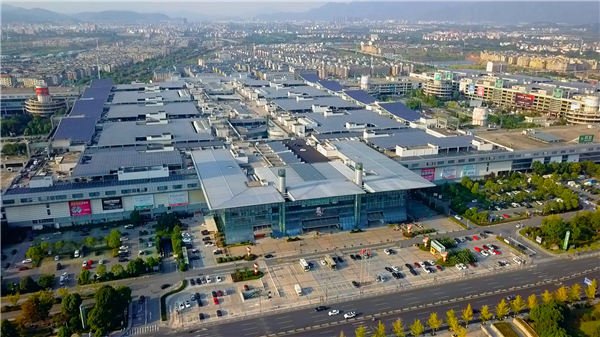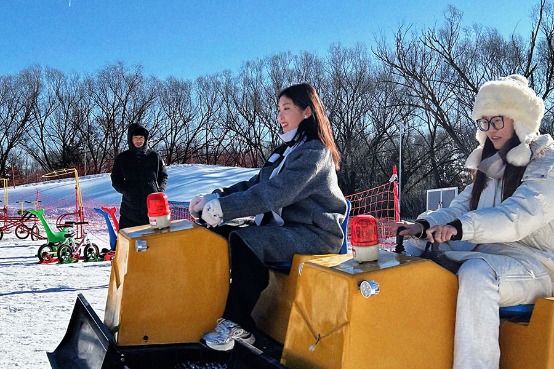A shopping paradise comes true


If you can buy it anywhere in the world, you can likely buy it in Yiwu-'it' being almost anything, including life-size robo Santas, who dance and play the sax. Erik Nilsson explores Earth's largest mall in 'the supermarket of the world'.
I encountered-and then joined-an army of life-size, saxophone-playing, dancing, robotic Santas in Yiwu. I happened across these automated, musical Kris Kringles in the planet's biggest mall in Zhejiang province's Yiwu, a city known as the "supermarket of the world".
Just for kicks, I donned a red-felt hat and stood among their ranks, trying to blend in.
It ... sorta worked. Not really, though.
If you can buy it-"it" being nearly anything-anywhere in the world, you can buy it in Yiwu. It's indeed a shopper's paradise come true.
In fact, the chances are pretty decent that what you're wearing or using right now may have been purchased wholesale from the city.
The 75,000-booth Yiwu International Trade Market is the epicenter of the world's largest trading hub for small commodities.
It's so vast that, if you were to visit every stall within a week, you'd only get eight seconds at each one.
One Western documentarian created an artistic video of its "infinity" that, by pure chance, popped up in my mobile-news feed a day after my visit.
I think it to be an appropriate word for the endlessness of the goods that stock countless shelves.
But, four decades ago, Yiwu's boundless retail sector was restricted. Ordinary citizens weren't allowed to operate large companies before the reform and opening-up.
"Our market originated from the local 'feathers-for-sugar' trade culture, which has a history of more than 300 years," He Haimei told me at her stall in the mall.
"Farmers would trade sugar, needles, thread and buttons-these very basic things-in exchange for chicken feathers around big festivals. This tradition made Yiwu what it is today."
She began her business by selling photos of performers from the film, Dream of the Red Chamber, for 1 yuan (14 US cents) outside cinemas.
She could earn 30 yuan in as many days.
"That was my husband's monthly wage back then. It was great money!"
She later made sun hats, using leftover material from a Japanese garment company in the city, and sold them for 0.3 yuan (4 US cents).
People started hawking goods at a street market that authorities shut down.
But she complained to a local leader.
"I told him that kids' trousers and other goods had been confiscated," she recalls.
"I said: 'All our goods come from Shanghai. If Shanghai can sell things, why can't we?'"
The official hosted a meeting about 20 days later, she remembers.

































